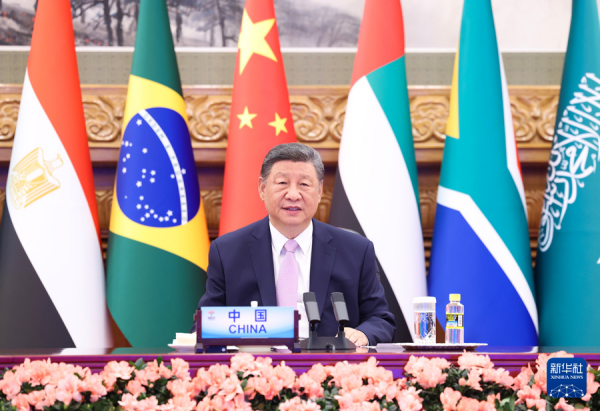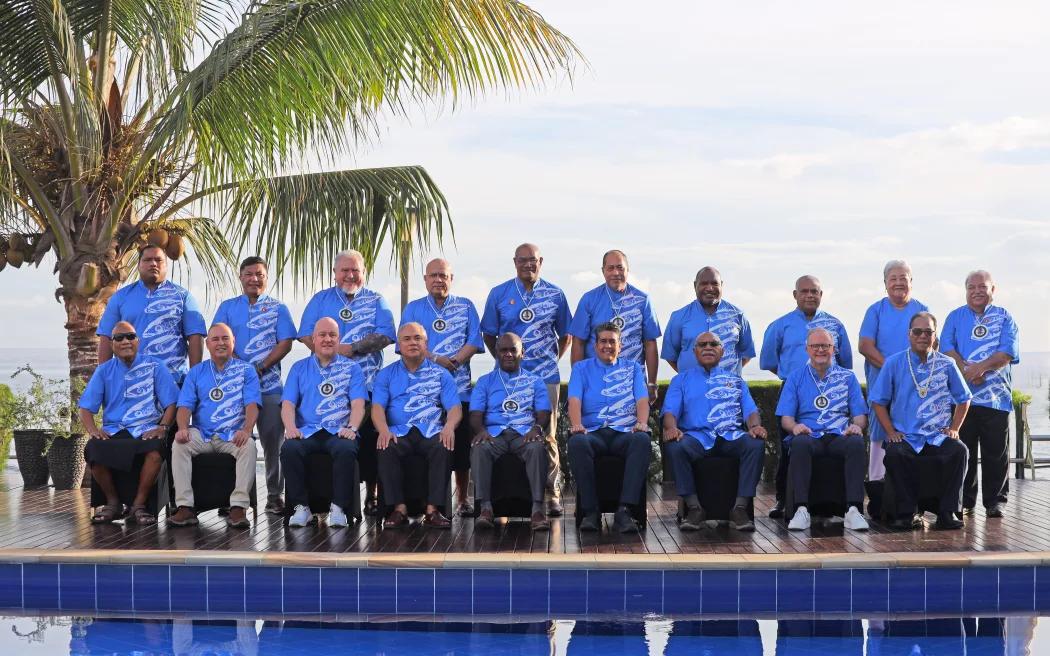

In 2018, China signed a maritime pact with Papua New Guinea.
Photo/PostCourier
China unveils maritime training programme for Pacific island nations
The initiative aims to address challenges while promoting shared cultural heritage through hands-on experiences and academic insights.


‘Treat us with dignity’: Pacific visa fight returns to Parliament



Fiji PM signals possible resignation after court rules anti-corruption chief dismissal unlawful

‘Treat us with dignity’: Pacific visa fight returns to Parliament


China's engagement in Pacific maritime cooperation is increasing, with a focus on areas such as marine science, economic development, environmental protection, and maritime security.
But its growing presence is also altering regional geostrategic dynamics.
This week, China launched a practical training programme aimed at helping maritime officials from the Pacific improve their skills and promote cross-cultural understanding, the Chinese government announced.
Chinese President Xi Jinping stated that if Beijing hopes to achieve “the great rejuvenation of the Chinese nation” by the middle of the 21st century, it must become a “maritime great power".
The latest initiative is part of a wider effort to strengthen cooperation based on shared maritime traditions.
In August 2025, the second phase of the programme - Maritime Management + Chinese Practical Training - was held in Quanzhou, Fujian Province, China. Fifteen officials from nine countries, including Fiji, Sāmoa, Kiribati, the Solomon Islands, Papua New Guinea, Vanuatu, Tonga, the Federated States of Micronesia, and Nauru, participated in the training.

President Xi Jinping says if China is to achieve “the great rejuvenation”, it must become a “maritime great power". Photo/Chinese Foreign Ministry
The programme, which was supported by the local maritime safety administration and Quanzhou Normal University, offered various training courses while also allowing participants to explore the rich maritime culture of the region.
While maritime boundaries and their indirect link were not mentioned at the recent Pacific Islands Forum Leaders Meeting in the Solomon Islands, leaders agreed that any changes to sovereignty or political status in New Caledonia could have implications for maritime boundaries, which were a key issue at the Honiara summit.
Chinese academics Lin Yiping, a lecturer at the School of Foreign Languages, Quanzhou Normal University, and Zhao Shuo, the director of the Research Centre of the Pacific Island Countries at the Academy of International and Regional Communication Studies in Communication, University of China, say the importance of the ocean for Pacific island nations cannot be overstated.

Pacific Islands Forum leaders at their summit in Honiara last week. Photo/PIFS
They say that it plays a vital role in economies and cultures. But these countries face major challenges, such as rising sea levels and adapting to new technologies.
"The program aims to address these challenges by providing technical maritime training and fostering dialogue on modern governance and ocean cultures," a joint statement reads.
"The curriculum was designed to address the most pressing maritime development priorities of island countries.
"Participants delved into comprehensive modules covering ferry safety protocols in archipelagic contexts, sustainable green shipping solutions tailored for small island economies, cutting-edge maritime emergency search and rescue coordination techniques, nuanced port state and flag state control compliance strategies, and transformative approaches to women's empowerment within male-dominated naval sectors."
The programme also included hands-on experiences, such as visits to maritime agencies and discussions on governance practices, helping participants understand advanced regulations and innovative shipping technologies.
The approach not only benefited the attendees but also helped strengthen ties between China and the Pacific islands in regional and global maritime matters.
Fujian Province is historically important for maritime activities, as it was home to early Chinese communities that relied heavily on the sea and played a key role in the spread of Austronesian culture across the Pacific.
The training programme harnessed Fujian's rich history to encourage the sharing of maritime knowledge and foster cultural exchanges.
Bilingual teaching and traditional cultural elements were part of the curriculum, allowing participants to learn basic Chinese language skills while exploring China's maritime heritage. Activities included calligraphy, paper-cutting, visiting museums, and exploring archaeological sites that linked them to their cultural roots.
During a symposium on cultural exchange, officials from various Pacific island nations shared their thoughts and experiences. They spoke about how Chinese products were prevalent in their communities, adding their admiration for their own maritime traditions.

Pacific and Chinese representatives during a symposium on cultural exchange in Fujian Province. Photo/Supplied
One official from the Solomon Islands highlighted similarities between the fishing customs of women in Fujian and those in her culture. Participants also exchanged ideas on preserving their unique cultural heritage, such as Fiji's tradition of tattooing for safe sea voyages. They agreed on the importance of continuing to deepen ties and cultural exchanges.
From 28 to 29 May 2025, China and representatives from the Pacific met in Xiamen, Fujian, to discuss the China Initiative on Strengthening Practical Maritime Cooperation with Pacific Island Countries, which was released to promote bilateral maritime governance collaboration in the new era.
The government states that the Pacific Island Maritime Officials Training Programme is an important step in implementing this initiative.
By establishing regular training sessions and working together to preserve maritime culture, this programme could serve as a valuable model for future international cooperation.